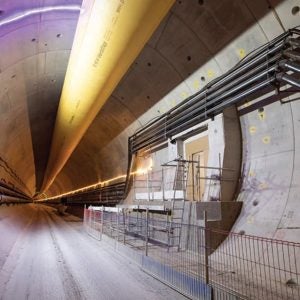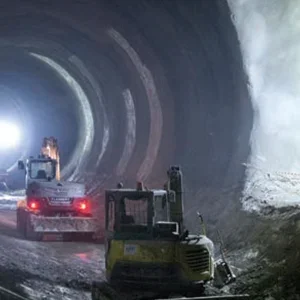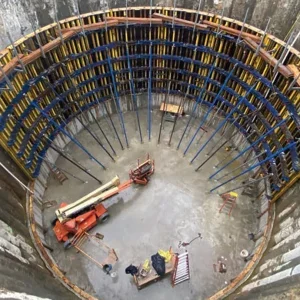
In the rapidly evolving digital landscape, data has become an invaluable asset. Organisations across various sectors are constantly seeking ways to extract meaningful insights and unlock the full potential of their data. But who owns the data? Who has rights to access it? Does it give one party a commercial edge over another? If the data has been created as part of a public project, should that data be available to be leveraged as a public good?
Let me start with data ownership. In UK law, data is not a property, cannot be stolen and data is not subject to a common law lien. Data cannot be owned. If it can be protected, what action could be taken if I add noise to the data and multiply each data point by a value, where only I have the key? Or what if I train my model on ‘your data’ and my model becomes more intelligent. In theory, I could harvest data from wherever I can get it from and use it to optimise my approach to tunnelling. There are means of protecting the data such as nondisclosure agreements, but data ownership is a topic fraught with legal complexity.
A way of avoiding it is to ensure that data is locked behind firewalls with no third party access. This may protect vested interests, but it isn’t good for society. We have a collective interest in driving down the cost of projects, so we can deliver more infrastructure, with a greater level of investment certainty.
Another way of getting over the commercial sensitivity of data is to use benchmarking services. They have been used in the oil and gas sector for decades. Performance Forum is one example, a joint industry project to measure project performance at start up. Other companies, such as Independent Project Analysis, have developed their own proprietary data sets, capturing decades of experience. The methods are well known, but the end product is a closed data set.
In 2018, the UK Infrastructure Projects Authority (IPA) launched the benchmarking hub for tunnelling data. Their mission was to create a forum to capture high level tunnelling metrics such as cost vs diameter of tunnel or production rates. A welcome step forward for the industry, but I would challenge whether this is heading in the right direction. It will create another closed dataset, with aggregated insights.
In an era of advanced data analytics and artificial intelligence (AI), we need access to data to train those models. Not just the high level metrics, but the detail to underpin them. From risks through to ground conditions, schedules to costs, logistics through to methodologies. But if all this data is put in the public domain then tunnelling organisations will be mindful of commercial or reputational damage. By opening up cost data, they introduce collusion risks. The answer is often to revert to what we know… benchmarking.
But I would argue that we must be bold and challenge the status quo. To drive up productivity, reduce carbon, improve investment certainty and so much more. Isn’t that in the interests of the clients who fund these projects, society and shareholders?
WHAT COULD THE MIDDLE GROUND LOOK LIKE?
This is where the concept of a data trust comes in. In 2017 the UK Government-sponsored AI review announced that to grow the AI industry in the UK, organisations required better access to data, with its key recommendation being the development of data trusts for data sharing – and this point was reinforced later in the National Data Strategy, in 2020. More recently, Parliament’s publication on sharing public sector data made the case for intermediaries, including data trusts.
A data trust is a legal and technical framework designed to ethically manage, share, and protect data on behalf of its beneficiaries.
The construction industry united around the concept of a Construction Data Trust and in 2020 a limited company was launched, with a non-profit mandate, with the objective of pooling construction data for the collective benefit.
The board, comprising representatives from key data providers, governs the way the data is used. It assesses risk and puts the appropriate controls in place to mitigate them, from data anonymisation through to adding noise into data.
Data trusts foster collaboration among multiple entities, enabling efficient and secure sharing of data between organisations. With the rise of data partnerships, industry consortiums, and multistakeholder initiatives, data trusts act as neutral intermediaries that facilitate data exchange whilst safeguarding the interests of all involved parties. This collaborative approach promotes innovation, knowledge sharing, and the discovery of new insights.
In late 2022, industry published the private sector construction playbook with the Construction Data Trust being a key part of their strategy for transforming the industry’s productivity.
In August 2023, the Australian Constructors Association’s report on ‘Nailing Construction Productivity’ also highlighted the need for “A national approach to construction data collection should be established that collates deidentified data on all government projects from across jurisdictions in a common format and in a secure environment.” It specifically referenced how “Data governance will be a key consideration in this initiative to ensure commercially or personally sensitive information is not shared.
It is worth noting that a similar, industry-led approach has been successfully adopted in the UK but suffers from a lack of strong government sponsorship (www.datatrust.construction).
AVOIDING ANOTHER PAINFUL EXPERIENCE
Before you make up your mind, I’d like to share a story from personal experience. In 2018, I tried to get hold of lessons learned data from government to improve how projects are delivered, and I struggled. I fired off a number of Freedom of Information (FOI) requests and got hold of some data but most doors were closed. So, I appealed, winning some and losing others. So, I appealed again, with one case ending up in court. I won the case, arguing that government is the custodian of public data rather than the owner of this data.
I tested the principle that if there is public interest in opening up the data, then it should be opened up. But this should be in a controlled way. However, the FOI process isn’t precise enough to manage these nuances, hence why I have spent so long championing the case for data trusts.
In my view, it is the only way forward to balance the demands of key stakeholders, whilst unlocking the opportunities inherent in advanced data analytics and AI. Otherwise, when innovators are starved of data and government is sat on a treasure trove of tunnelling data, the only way of getting access to it is via the FOI process. That doesn’t seem sensible to me.
At Projecting Success, we founded the Project Data Analytics Community in 2017, where the benefits of a collaborative approach to data driven project delivery were becoming increasingly evident. Since then we have hosted 19 hackathons to solve shared challenges, including working with HS2 to use data analytics to mitigate the impact of extreme weather. The most crucial part of this jigsaw is having people who understand how to unlock the power of data-driven project delivery.
We’ve been providing world class training on this topic, leveraging the government’s training levy, since 2020 helping hundreds of people to transform the way they work. Get on the bus and prepare for a new and hugely exciting future.
DECISION POINT
The industry will need to decide whether to continue to pursue a benchmarking-based approach or consider opening up data in a controlled way via a data trust, so underpinning data-driven project delivery methods and advancements. The ecosystem already exists.







